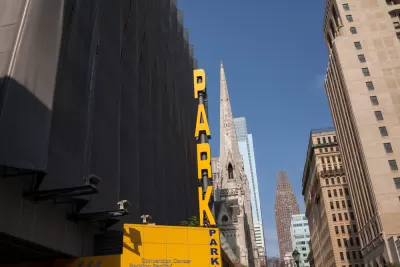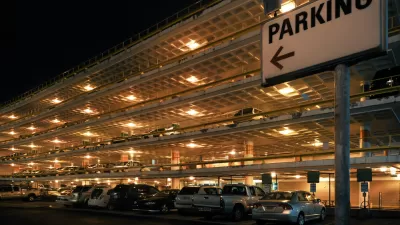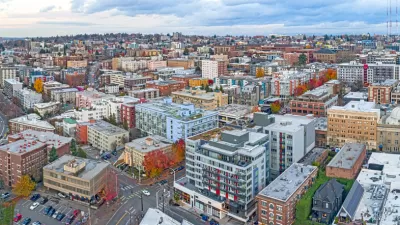Recent investigations into the conditions facing workers in private parking lots in Philadelphia has produced a series of legislation reforms, but one idea, to lower the city's parking tax, isn't going to fly with this opinion writer.

A recent investigation into the working conditions of private parking companies in Philadelphia has produced a series of legislative responses designed to protect the health and safety of both parking lot employees and the people who pay to park in the city's private lots.
According to an opinion piece by Daniel Trubman, one of the legislative responses to the problems facing parking lot employees goes too far, however, in suggesting a reduction for the city's parking tax.
"We must move beyond the idea that the way to secure well-paying jobs is to cut the taxes of dangerous and environmentally destructive industries. That’s a strategy befitting a 19th-century coal mining town, not the dynamic and innovative Philadelphia of 2020," writes Trubman.
Among the causes betrayed by the proposed reduction of the city's parking tax, according to Trubman, are climate change mitigation, air quality, a green economy, air quality, Vision Zero, public transit, and progressive tax reform.
"Which services does this city envision should be cut even further in the near future for the benefit of drivers? Should more librarians be laid off? Should the hours and programming at the city’s recreation centers be further reduced? Does this council envision the need for homeless services will decrease in the coming years?"
FULL STORY: Why Mayor Kenney must defend Philly’s parking tax

Planetizen Federal Action Tracker
A weekly monitor of how Trump’s orders and actions are impacting planners and planning in America.

Maui's Vacation Rental Debate Turns Ugly
Verbal attacks, misinformation campaigns and fistfights plague a high-stakes debate to convert thousands of vacation rentals into long-term housing.

Restaurant Patios Were a Pandemic Win — Why Were They so Hard to Keep?
Social distancing requirements and changes in travel patterns prompted cities to pilot new uses for street and sidewalk space. Then it got complicated.

In California Battle of Housing vs. Environment, Housing Just Won
A new state law significantly limits the power of CEQA, an environmental review law that served as a powerful tool for blocking new development.

Boulder Eliminates Parking Minimums Citywide
Officials estimate the cost of building a single underground parking space at up to $100,000.

Orange County, Florida Adopts Largest US “Sprawl Repair” Code
The ‘Orange Code’ seeks to rectify decades of sprawl-inducing, car-oriented development.
Urban Design for Planners 1: Software Tools
This six-course series explores essential urban design concepts using open source software and equips planners with the tools they need to participate fully in the urban design process.
Planning for Universal Design
Learn the tools for implementing Universal Design in planning regulations.
Heyer Gruel & Associates PA
JM Goldson LLC
Custer County Colorado
City of Camden Redevelopment Agency
City of Astoria
Transportation Research & Education Center (TREC) at Portland State University
Jefferson Parish Government
Camden Redevelopment Agency
City of Claremont





























